The dark era ends
By Jaliya Wijeyekoon
Wither Sri Lanka, one time a vibrant democracy, was the multi-billion
question in the international fora till recently. An overnight silent
revolution backed by the ballot dawned a new era on a decisive day on
January 8, 2015.
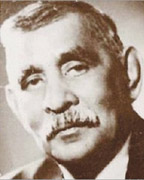 |
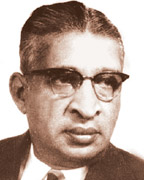 |
 |
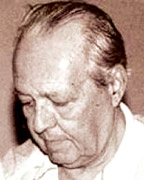 |
| D.S.
Senanayake |
Dudley
Senanayake |
S.W.R.D. Bandaranaike |
Pieter Keuneman |
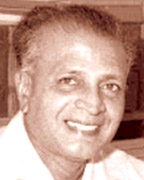 |
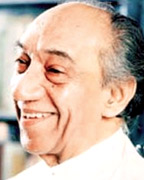 |
 |
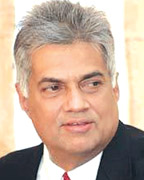 |
| Dr. N.M.
Perera |
J.R.
Jayewardene |
V. A. Sugathadasa |
Ranil Wickremesinghe |
Elections at regular intervals, universal suffrage, representative
Parliament and the like attributes of democracy remained in the country
yet under the spell of fear and apprehension. What really matters is not
the mere nameboard or trade-mark of democracy but the spirit with which
it works in a society where the rule of law and independence of the
Judiciary are upheld. In the recent past, all such values died a natural
but painful death.
Here are some of the recent newspaper captions -
'Travel ban on Mahindananda', Lankadeepa - 27.1.2015
'Presidential secretariat vehicle fleet - 245 missing' - Lankadeepa
27.1.2015
'100 kilos of gold worth over billions' - Allegation against the
former First Lady by a former DIG's wife - 27.1.2015.
'19 gunny bags full of Prime Minister's office documents found in
former PM's Secretary's well in Minuwangoda' - Lankadeepa 26.1.2015
'Litro gas deal, - Rs. 700 million loss to government' - Divaina
25.01.2015
'CJ quizzed by the CID' - Lankadeepa 24.1.2015
The Hela Urumaya calls upon the Government to investigate the case of
251 kgs of heroin smuggled to Sri Lanka where the former PM's son and
Secretary were allegedly involved. - Lankadeepa 24.01.2015
'Travel ban on Sajin Vas and Cabraal' - Lankadeepa, 23.1.2015
'53 Presidential Secretariat vehicles found at Kotte' - Lankadeepa –
23.01.2015
'CID trailing a former IGP and a young Colombo district MP – Wele
Suda's business buddies' – Divaina 23.1.2015
'Lasantha, Jeyaraj, Raviraj and Thambimuttu Killings to be probed' –
Lankadeepa 22.1.2015
'Sixty-thousand bottles of Wayamba arrack seized at Dematagoda' (A
Cabinet Minister is a shareholder of the manufacturing company).
These are only a microscopic number of the misdeeds alleged to have
been committed by UPFA politicians, State officials and other UPFA
cohorts whose blind allegiance made them feel that their Government was
invincible.
From the PS member right up to the UPFA top brass were a law unto
themselves. Most UPFA Pradeshiya Sabha Chairmen were tinpot dictators
rampaging villages like wild jumbos.
If not for the pressure local and international, the down-South young
PS Chairman, a fugitive of law who was found guilty of murdering a
British national would have escaped the long arm of the law.
Lawlessness
The non-application of law to UPFA goons became a weird phenomenon in
Sri Lankan politics. In Deraniyagala, some estate workers under the
patronage of UPFA PS Chairman - “Athakota” killed the Superintendent of
Noori-Estate in broad daylight.
All these were due to the non-enforcement of law and humiliation of
the police. The police became a virtual prisoner at the hands of the MP,
the strong man of the area. A classic example of this was where a
Southern Lanka Deputy Minister notorious for his foolhardiness raided
the local police station with his thugs and took away some arson
suspects saying that he would himself produce them in courts.
The Government maintained a deafening silence. The law of the jungle
prevailed at its brazen best. All that was inviolable were openly raped
with impunity.
Politicised judiciary
In the democratic set up the Judiciary is treated as sacred and
independent. The Superior courts were packed with political appointees
and the former CJ was humiliated and sacked.
Stooges in key posts
Political henchmen who knew next to nothing were appointed to man key
public institutions.
The Ports Authority, the national carrier, SriLankan Airlines,
Petroleum Corporation and Central Bank suffered unprecedented losses.
It was revealed that the former IMF shamed boss Strauss Khan was
hired at a cost of US $ 750,000 to make Sri Lanka a financial hub.
The list is far from over. Several PR companies in the USA were paid
huge sums of money to promote Sri Lanka's image in the international
community.
Greece is relatively a poor economy punctuated by recurrent setbacks
of near total economic collapse. The financial wizardry of the Central
Bank was such that they invested billions in Greek bonds. The enterprise
was a total loss to the country.
Foreign Service
Career diplomats were sidelined to accommodate unlettered political
neophytes to key stations. Even Consular offices were not safe as they
became the junkyard for the ministerial kith and kin. The net result was
that Sri Lanka was completely isolated in the international arena and
lost badly at the last two UNHRC sessions in Geneva.
Media freedom
The media was compelled to enforce self-censorship in reporting not
only controversial issues but even daily events. Several media personnel
were tortured and murdered or forced to migrate. Media institutions with
its billions worth equipment were set ablaze by UPFA goons who held
sway.
Some state media institutions were headed by Government henchmen who
ravished the noble profession paying scant respect to the accepted
norms. They exploited the service only to attack the political opponents
of the UPFA in uncouth language and false allegations and to thrive
themselves in extravagance.
State print media circulation figures dropped sharply due to the lack
of good reading material in their lop-sided publications. They sang
hosannas for the UPFA while unfounded allegations were levelled against
Opposition politicians to tarnish their image.
The import of cheap and substandard medical drugs became a lucrative
business at the risk of death to patients.
The progressive National Drug Policy introduced by Senaka Bibile
disappeared eventually at the hands of drug barons without even a trace
of the document. All this took place with the blessings of some
politicians who were closely linked to multibillion drug importers.
Men of calibre
Dacades ago in Sri Lanka the noble art of politics was practised by
men of calibre, intergrity and simplicity such as D.S. Senanayake,
Dudley Senanayake, S.W.R.D. Bandaranaike, Dr. N.M. Perera, Dr. S.A.
Wickremesinghe, Phillip Gunawardene, Dr. Colvin R. De Silva and J.R.
Jayewardene.
On the mere allegation by Dr. N.M. Perera that the Prime Minister
favoured in awarding contracts to his brother's company to purchase
equipment, Prime Minister Dudley Senanayake appointed a Parliamentary
Select Committee headed by Dr. N.M. Perera himself to probe the alleged
deal. Eventually Dudley was exonerated of all allegations and Dr. N.M.
Perera, the gentleman-politician tendered an open apology in Parliament.
Communist leader Pieter Keuneman too tendered an open apology in
Parliament for a somewhat similar allegation against Minister V.A.
Sugathadasa.
Those were the days when people of all parties acted democratically
and politics was not a profession or a lucrative business but a noble
service for them irrespective of the camp they belonged to.
Most of them were born with the silver spoon in their mouth and when
they retired from politics they had only a megre income for their
survival having spent everything on social service. Dudley Senanayake
had only Rs. 456 in his bank account at the time of his demise.
S.W.R.D. Bandaranaike had mortgaged his Rosmead Place property for
his political campaign. Similarly, most party leaders in the past ended
their lives as virtual paupers in contrast to the present day defeated
politicians who had amassed wealth for generations pillaging state
coffers and having ventured into all types of corruption, malpractices
and illegal deals.
With the effluxion of time especially during the last decade,
politics became a lucrative business for most UPFA parliamentarians.
After winning the war some UPFA stalwarts thought that they would never
be defeated under any circumstances. They indulged in all forms of
nefarious activities with the powers vested in them by virtue of the
portfolios they held.
New concept
The concept of a common candidate mooted by Ranil Wickremesinghe and
ably supported by a large number of progressive forces in the country
who were hell-bent in dispelling the Rajapaksa maladministration worked
relentlessly to form a Government with a new political culture and good
governance.
After an aggressively fought battle, the common front heaved a sigh
of relief on January 9 with the resounding victory achieved.
The vast majority of the countrymen eagerly and anxiously await to
see how the present rulers fulfill their pledges to relieve the people
from the grip of poverty and establish law and order in the country to
maintain good governance with a new political culture. The common man is
quite content with the mini budget proposals presented by Finance
Minister Ravi Karunanayake on Thursday as the prices of essential
commodities have been reduced substantially and many measures taken to
reduce the cost-of-living.
Similarly, the people look forward to see how the culprits will be
brought to book and dealt with severely as they plundered the State
coffers making the average man poorer but wiser. |

